No products in the cart.
Return To ShopHalal Supplement Guide for Pakistani Consumers
In today’s health-conscious world, supplements play a crucial role in maintaining wellness and enhancing physical performance. However, for Pakistani consumers, ensuring these supplements meet halal standards is a significant concern. This Halal Supplement Guide for Pakistani Consumers aims to provide clear, trustworthy information to help you make informed decisions about your health while respecting Islamic dietary laws.
Understanding Halal Supplements
The term halal refers to what is permissible or lawful in Islamic law. When it comes to supplements, halal certification means the product does not contain any ingredients forbidden by Islamic teachings, such as pork derivatives or alcohol, and that it has been manufactured in compliance with halal practices.
Halal supplements are not just about the absence of forbidden substances. They also emphasize ethical sourcing, manufacturing hygiene, and transparent labeling, giving Pakistani consumers confidence in what they consume.
Why Is Halal Certification Important for Supplements?
For many Muslims in Pakistan, faith is intertwined with every aspect of life, including diet and health. Taking supplements that are not halal can be a cause of anxiety and religious concern. Here’s why halal certification matters:
- Religious Compliance: Supplements free from haram (forbidden) ingredients align with Islamic dietary laws.
- Health Assurance: Halal certification ensures no harmful or unethical ingredients are used.
- Consumer Trust: Certified products foster trust between manufacturers and consumers.
- Ethical Manufacturing: Halal certification often involves stringent manufacturing standards ensuring quality and safety.
As a Pakistani consumer, checking for halal certification should be a top priority when choosing any supplement.
Common Non-Halal Ingredients to Watch Out For

Many supplements contain additives or fillers that may not be halal. Being aware of these can help you avoid non-compliant products. Some common non-halal ingredients found in supplements include:
- Gelatin: Often derived from pork or non-halal slaughtered animals.
- Alcohol: Used in some liquid supplements or as a solvent.
- Enzymes: May come from animal sources.
- Glycerin: Sometimes sourced from pork fat.
- Magnesium Stearate: May be derived from animal fats.
Reading ingredient labels carefully and seeking halal certification seals can save you from unintentionally consuming haram substances.
How to Identify Genuine Halal Supplements in Pakistan
In Pakistan, the market for halal supplements is growing, but so is the risk of counterfeit or falsely labeled products. Here are some practical tips to identify genuine halal supplements:
- Look for Halal Certification: Check if the product is certified by reputable halal certifying bodies recognized in Pakistan.
- Research the Brand: Established brands are more likely to follow halal standards.
- Read Ingredient Lists: Be vigilant about hidden non-halal ingredients.
- Check Manufacturer’s Website: Many companies provide detailed halal compliance information online.
- Consult Professionals: Pharmacists and nutritionists familiar with halal products can guide you.
Following these steps will help Pakistani consumers confidently select halal supplements that meet their health and religious needs.
Benefits of Using Halal Supplements

Opting for halal supplements offers multiple benefits beyond religious observance. Here’s why Pakistani consumers should consider halal supplements:
- Peace of Mind: Confidence that the supplement aligns with Islamic values.
- Improved Health: Halal-certified products often undergo rigorous testing for purity.
- Transparency: Clear labeling allows better understanding of what you consume.
- Wider Choice: Growing halal supplement markets offer diverse options.
- Support Ethical Practices: Encourages companies to maintain high ethical and quality standards.
These benefits make halal supplements a preferred choice for conscientious Pakistani consumers.
Popular Halal Supplements for Pakistani Consumers
Certain supplements are particularly popular among Pakistani consumers looking for halal options:
- Protein Powders: Made from whey or plant-based sources with halal certification.
- Multivitamins: Designed to meet daily nutritional needs without haram ingredients.
- Omega-3 Supplements: Fish oil capsules that are certified halal.
- Herbal Supplements: Such as turmeric, black seed oil, and honey-based products.
- Performance Enhancers: Creatine and BCAAs from halal-certified sources.
Always confirm halal status before purchasing to ensure compliance with your faith.
Challenges in Finding Halal Supplements in Pakistan
While awareness is growing, Pakistani consumers still face challenges when sourcing halal supplements:
- Limited Availability: Not all supplements have halal-certified versions.
- Lack of Awareness: Consumers may not recognize halal certification logos.
- Price Differences: Halal-certified products can sometimes be more expensive.
- Counterfeit Products: Risk of fake halal seals in the market.
- Inconsistent Standards: Different certifying bodies with varying rigor.
Despite these challenges, Pakistani consumers are becoming increasingly vigilant, driving demand for authentic halal supplements.
Tips for Buying Halal Supplements Online in Pakistan
Online shopping is becoming a popular way to buy supplements, but it requires caution to ensure halal authenticity:
- Buy from Trusted Sellers: Reputable online stores or official brand websites.
- Verify Certification: Ask for halal certification documents if unclear.
- Read Customer Reviews: Learn from other buyers’ experiences.
- Avoid Suspiciously Cheap Products: Extremely low prices may indicate low-quality or non-halal items.
- Check Return Policies: In case the product does not meet your expectations.
Using these tips will help you safely navigate the online market for halal supplements.
FAQs:
Q1: What does halal certification on supplements mean?
Halal certification ensures that the supplement complies with Islamic dietary laws, containing no forbidden ingredients and being produced under ethical, hygienic conditions.
Q2: Can I trust supplements labeled “halal” without certification?
It’s best to rely on recognized halal certification rather than just the label. Uncertified claims may not guarantee compliance.
Q3: Are all protein powders halal?
Not all protein powders are halal. Some contain gelatin or other animal-derived ingredients, so always check for halal certification.
Q4: Where can I find halal supplements in Pakistan?
You can find halal supplements at specialized health stores, pharmacies, and trusted online platforms that provide halal certification information.
Q5: Why are halal supplements sometimes more expensive?
Halal supplements may involve higher costs due to strict sourcing, certification processes, and ethical manufacturing standards.
Conclusion
Navigating the world of supplements can be overwhelming, especially when seeking products that comply with Islamic principles. This Halal Supplement Guide for Pakistani Consumers has highlighted the importance of choosing halal-certified supplements, explained how to identify genuine products, and addressed common challenges faced in Pakistan.
By prioritizing halal supplements, you not only safeguard your health but also honor your religious values. For reliable information and access to a wide range of halal supplements tailored for Pakistani consumers, visit SportsOne today. Make your wellness journey both healthy and halal-compliant with trusted guidance and products.

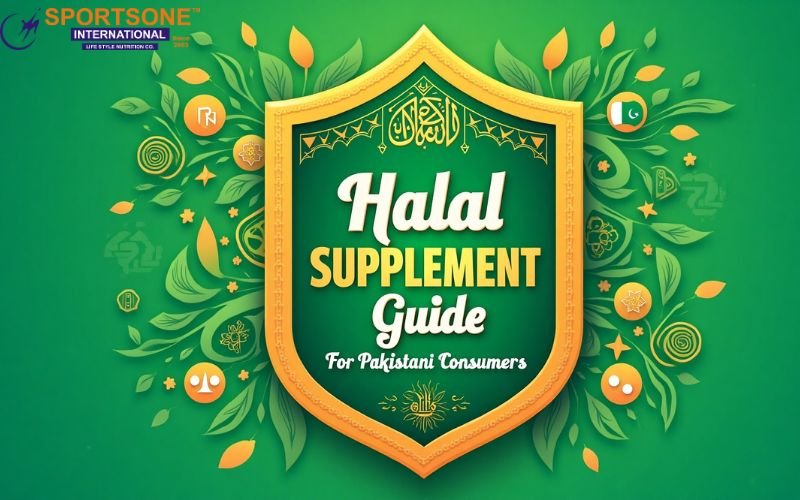
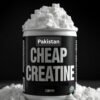

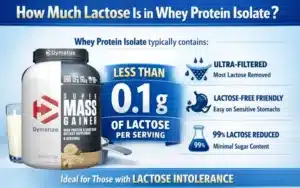

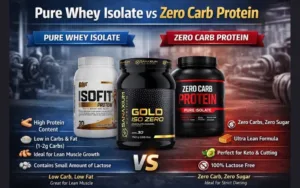
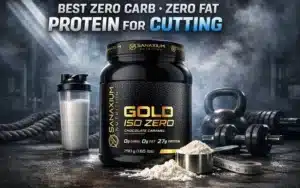

Add comment